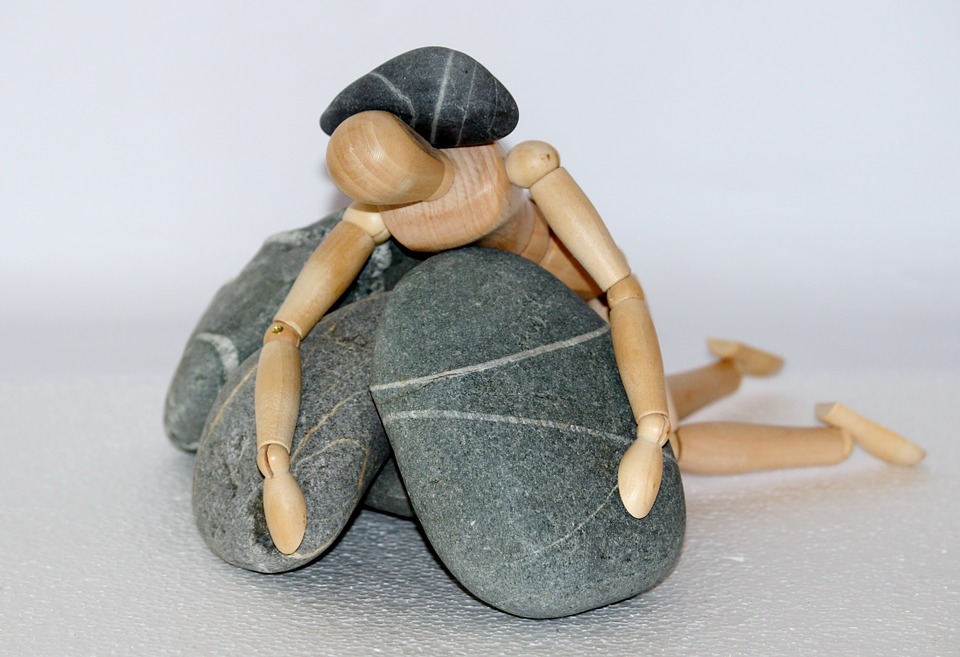Arguing against unnecessary suffering is a no-brainer, and yet there are those who will argue in favor of it for religious or superstitious reasons. Who would want to suffer needlessly? Who would want to impose their wretchedness on others for purposes other than revenge, retribution, or simple rancor? And yet, our world is fraught with plenty of masochists who enjoy imposing their misery or psychological imbalance on the common folk for no other purpose than to punish them for their unrequited suffering; our world is fraught with plenty of sadists who would be willing to mutilate themselves in order to elicit horror, disgust, shame, guilt, and even compassion from the intended victim of their twisted way of thinking. No, no, I cannot subscribe to the notion of unnecessary suffering, and yet many have compelling arguments regarding its relative inevitability.
What constitutes, therefore, unnecessary suffering?
It can take many forms, it is widespread and a daily reminder of Life’s unpredictability. The most compelling argument against unnecessary suffering is its correlation to cause and effect ~ if people can be made to see that they bring on their problems as a consequence of ignorance, of selfishness, of reckless behavior and an undue addiction to sensory stimulation and the passions that lead to excess, to destructive behavior and negative emotions, then perhaps the level of needless suffering would plummet, and we would all be living in a more harmonious, and peaceful environment of our own making.
The irrepressible facts of nature and existence have fortified our species with certain traits and instincts that guard against the inherent dangers encountered in the course of daily survival. These same traits, however, do not make for a happy, organized society that depends on the suppression of the ego and basic cooperation to make it work, especially in our age; in such a given society those very hunting instincts only lead to cruelty, violence, and some very naughty behavior. Our ancient fore-bears knew about all this, thus, during that remarkable period many historians refer to as the ¨Axis Age¨ when great thinkers seemed to have appeared on the world stage all of a sudden, at about the same time, including the Buddha, the Mahavira, Zoroaster, Herodotus, Confucius, Lao Tse, Pythagoras, and the geometricians, some of the greatest and most enduring philosophies and their off-shoot religions were founded. All of their religions taught balance, avoiding excesses, avoiding ¨unnecessary suffering,¨ which was particularly true for the Buddhists: the Four Noble Truths about what constitutes suffering, and the Noble Eight-fold plan, which teaches one how to live a proper and correct existence by avoiding things and modes of behavior of the sort that invite suffering, thus prolonging the misery, and constituent ignorance, of mankind. Christianity (and Judaism to a lesser yet more profound extent), by twist and turns, borrowing and stealing ideas and teachings related to other, non-Biblical faiths, has benefited from the philosophy of balance and harmony, or of reciprocity.
 The above-mentioned philosophers were great men, but each one constitutes the proverbial ¨happy accident¨ in humanity‘s ocean of mediocrities. Thus, what does the average mediocrity do to learn from their exalted example? During the long dark ages that enveloped human societies before the onset of the Renaissance, the Age of Enlightenment, and, more to the point, the Industrial Revolution, as well as this Information Revolution we are currently living through, people relied on their religions and the regional cultures that bore them, and groups formed themselves into bands of hermits, brotherhoods, monks, et cetera, that sought to isolate themselves from the misery of the vicious cycle of birth-struggle for survival-reproduction-and death, and they tried to pass their discipline on to future generations, but only a select few benefited from their collective knowledge.
The above-mentioned philosophers were great men, but each one constitutes the proverbial ¨happy accident¨ in humanity‘s ocean of mediocrities. Thus, what does the average mediocrity do to learn from their exalted example? During the long dark ages that enveloped human societies before the onset of the Renaissance, the Age of Enlightenment, and, more to the point, the Industrial Revolution, as well as this Information Revolution we are currently living through, people relied on their religions and the regional cultures that bore them, and groups formed themselves into bands of hermits, brotherhoods, monks, et cetera, that sought to isolate themselves from the misery of the vicious cycle of birth-struggle for survival-reproduction-and death, and they tried to pass their discipline on to future generations, but only a select few benefited from their collective knowledge.
Suffering is inevitable, unavoidable!
All of these patriarchal, and patronizing, religions, for all of the disagreements they have over needless dogmas, all agree on one point; Suffering is inevitable, unavoidable ~ a necessary fact of life to fortify humanity against the threats and tribulations of the rest of world, which cares not for an individual’s survival, let alone existence, so long as the over-arching principle of Life and Being is upheld. But, today, we live in a different world ~ one cushioned by the advances and sophistication of science, technology, and the arts, so why all the fuss about suffering? Today, all of the advanced, industrialized societies provide the resources, to varying degrees, that give their citizens access to ways and means of preventing, or at least controlling, needless suffering, but they, just like the many backward, struggling and Third-World societies, are all grounded in those ancient cultures and their religions, which really had their work cut out for them with respect to discovering a viable meaning for Life, and individual fulfillment in the social domain of belonging and acceptability. 
Unnecessary suffering is therefore up to the individual; every second of our existence, ignorant of the reality or not, we are subject to the consequences of the causes we make ~ the affirmation or acrimony resulting from our actions. We are all, whether we appreciate the fact or not, subject to the same passions, same social choices that our ancestors were, hence, in spite of all of the modernity of this technologically advanced age, we still rely on the beliefs, and superstitions, that upheld the psychological universe for them. I make no argument for or against organized religions, but with respect to making sense of one’s own life, and the clues that assist us in preventing not only physical but, more to the point, emotional and psychological suffering, are to be found in the tenets of the more familiar and accepted major religions. Enlightened people have their way of dealing with Life’s travails, but for the common, average folk, a dose of ¨old time religion¨ just might be what they need to find a way out the trap of suffering they have set for themselves by their very bad habit of imposing suffering on others.
If the latter doesn’t make any sense, then I will argue against myself for having invited unnecessary polemics to the literary fray!






